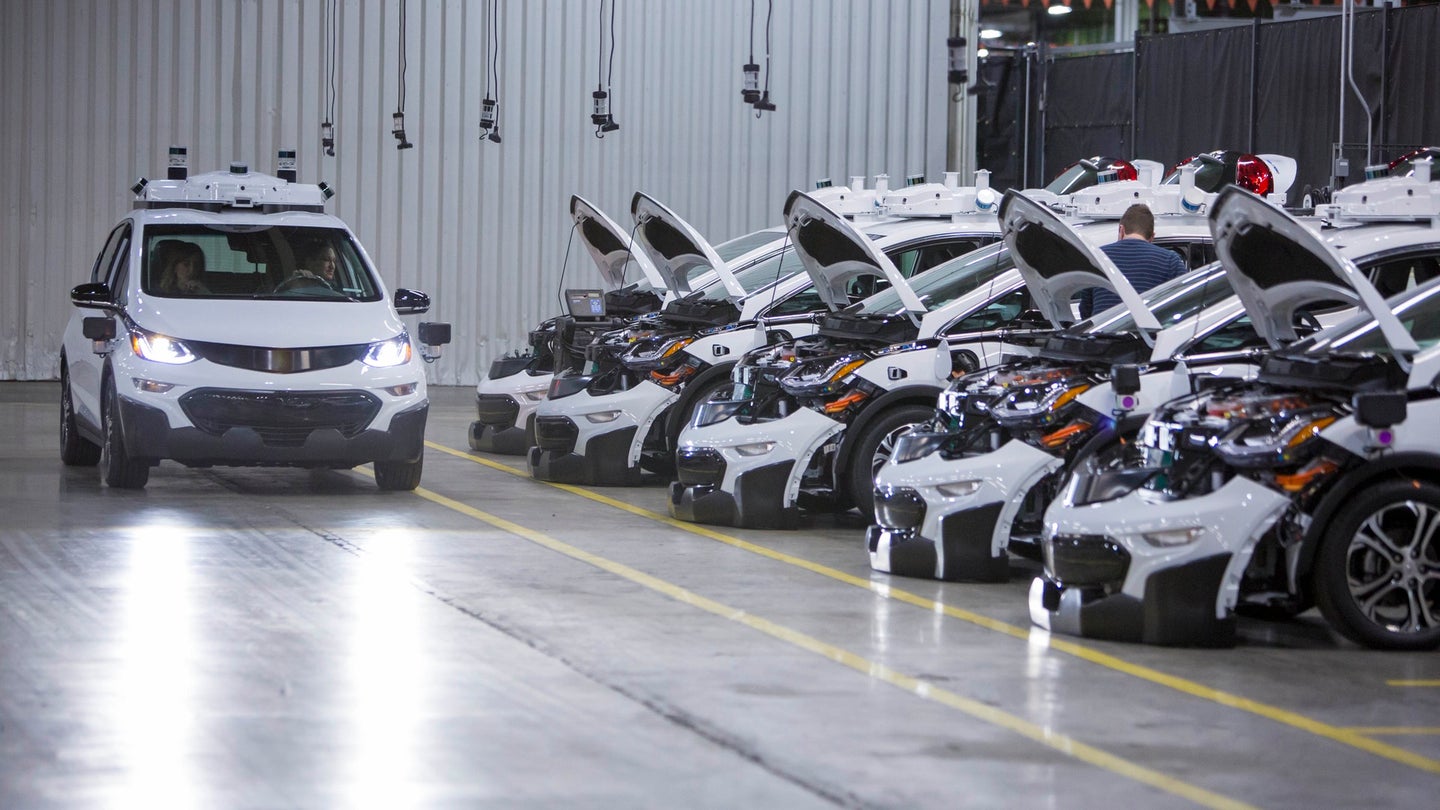Congress Set to Move Forward With Self-Driving Car Rules on Wednesday
The House is about to vote on self-driving car legislation as the DOT prepares revised guidelines.

The federal government appears poised to take a major step toward regulating self-driving cars. The House of Representatives is expected to vote on a bill Wednesday that would put more autonomous test vehicles on the road more quickly, while the Department of Transportation is reportedly following through on a promise of revised self-driving car guidelines.
The House bill has been working its way to a vote for several months. If passed, it would represent the first significant attempt to regulate self-driving cars—although many of its provisions deal with autonomous-vehicle testing, not the commercialization of the technology.
The bill calls for a greater number of exemptions from government safety standards for test vehicles. Companies would be able to put up to 100,000 prototype autonomous cars on public roads after three years. It would also allow the federal government to preempt state-based self-driving car regulations. This is appealing to vehicle developers because they will only have to worry about following one set of rules, rather than different guidelines for different states.
However, critics of the bill have said it does not provide enough government oversight. The National Highway Traffic Safety Administration, which will likely be charged with enforcing any rules, hasn't been heavily involved because President Donald Trump has not nominated a new leader for the agency.
A group of Senators on the Commerce Committee are working on a bill that would complement the House one, according to Axios, but no significant progress has been made.
Meanwhile, U.S. Transportation Secretary Elaine Chao will unveil revised autonomous car guidelines next Tuesday, reports Reuters. These non-binding guidelines would augment or replace guidelines issued during the Obama Administration in September 2016. Those guidelines asked companies to voluntarily submit 15-point "safety assessments" to the federal government, and encouraged states to defer to federal authority on rule-making.
Some companies have chafed at the reporting requirements of the Obama guidelines. Given the Trump Administration's disdain for regulations and interest in ingratiating itself with business interests, it's possible that the new guidelines will be less strict.
But regulations need to do more than make things easier for automakers and tech companies; they need to establish safeguards and ensure that this new technology is deployed responsibly. As companies rush to get self-driving cars on the road, lawmakers need to avoid getting caught up in all of the hype.
